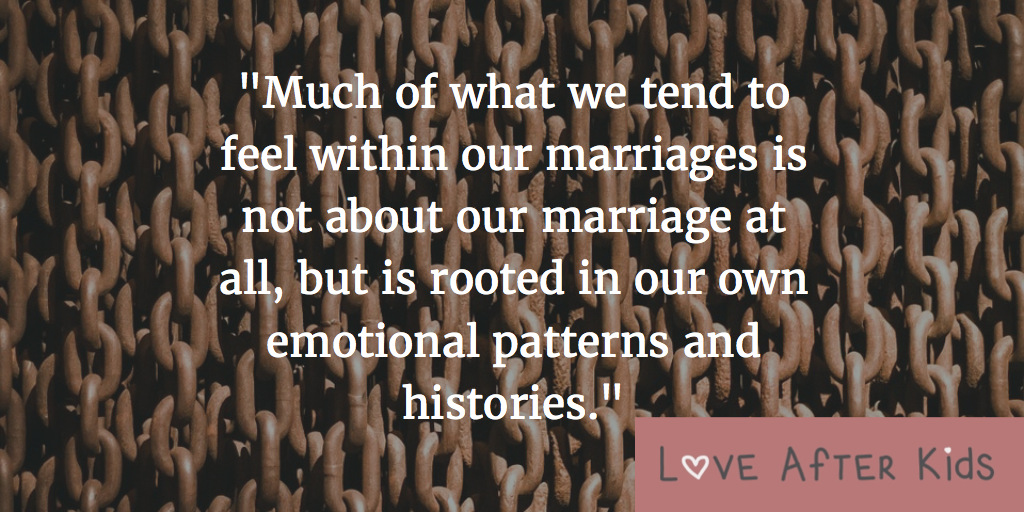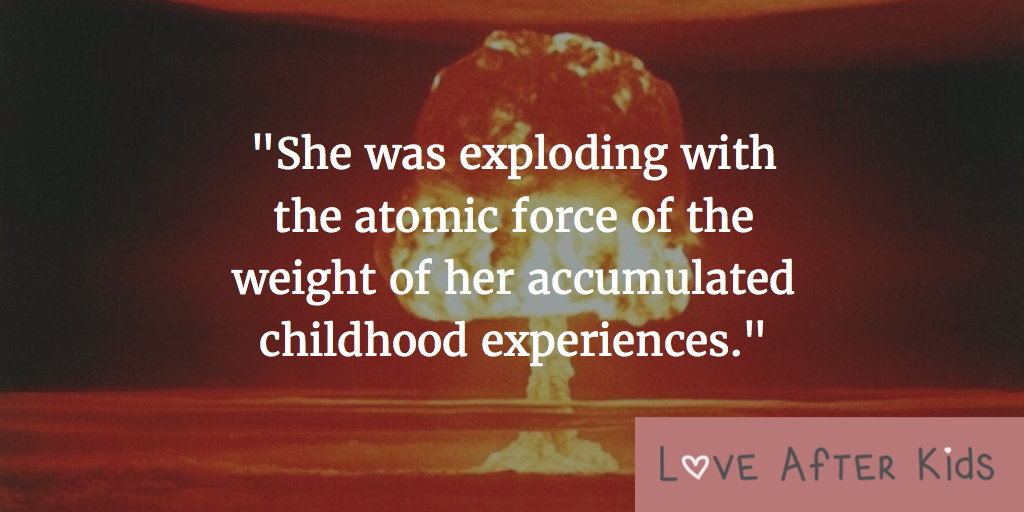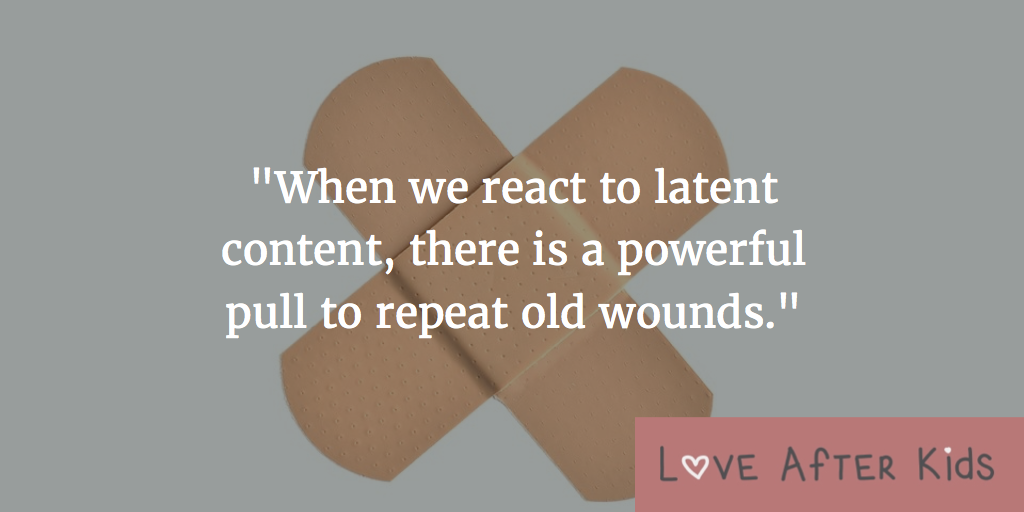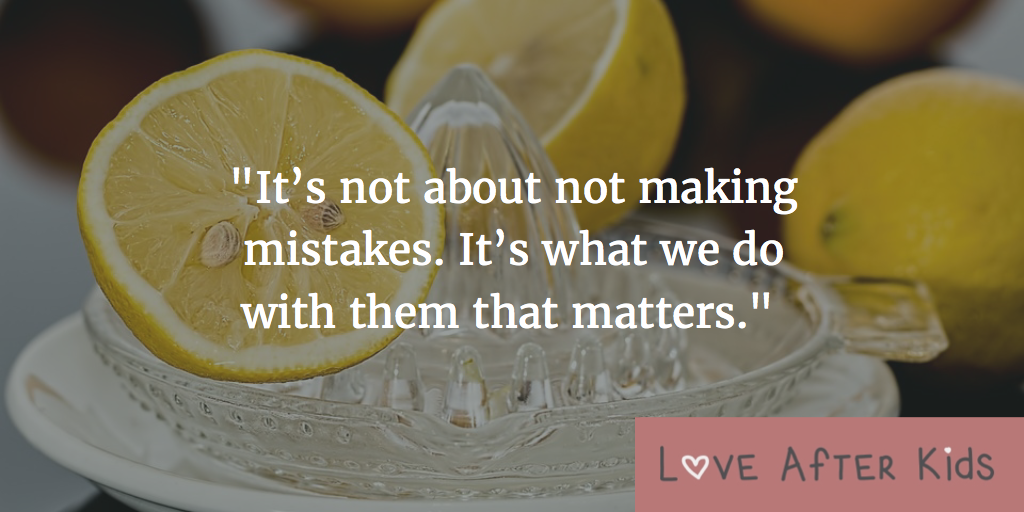Co-Authored by Eric S. Jannazzo, Ph.D
Too many marriages get stuck in unending loops of conflict because the latent content is never understood, let alone addressed. So the flame of a fight might die out, but since the combustible latent material remains untended to, it needs only an emotional spark to ignite again.
Of course the combustible latent material is not limited only to unaddressed issues within the marriage, for we all bring to our marriages our own individual traumas big and small, complex emotional histories that have nothing at all to do with our partners.
These histories, together with our natural temperaments, leave each of us with emotional and cognitive tendencies. That is, each of us tends towards certain feeling states and thought patterns, and these thoughts and feelings tend to shape our interpretations of relational moments, even – perhaps particularly – within our marriages.
To put it simply: much of what we tend to feel within our marriages is not about our marriage at all, but is rooted in our own emotional patterns and histories.
***
One of us (David) asked his wife (Deb) to go with him to the chiropractor with their daughter (Emma) so that she could play with Peanut, the chiropractor’s dog. David really just wanted their company. When it was time to leave for the appointment, Emma was tired and ready for her nap, but David really wanted them to go.
Even though Deb protested and didn’t feel like going, knowing Emma was going to have a meltdown, she went along. As they were getting ready to leave, their son (Eric) flipped out. He didn’t want to be left out. David didn’t include Eric because he is older and he didn’t think he’d want to go with them.
Since Eric was going, they had to deal with Phinny, the dog, crying at the door, so they took him along as well. It was a ticking time bomb. They got to the office and Phinny got into a fight with Peanut, which sent Emma into hysterics. It went downhill from there.
When they got into the car to go home, Deb immediately blamed David for everything. She was triggered because she spent her childhood subjugating her own needs. When she finds herself instinctively doing the same thing as an adult, she tends to get very upset and overwhelmed, and this was no exception.
Deb was not just reacting to the current event, rather she was exploding with the atomic force of the weight of her accumulated childhood experiences. This meant that she could only see David’s actions in the moment as selfish and manipulative, making it impossible to also see his desire for connection.
When we react to latent content, there is a powerful pull to repeat old wounds. As you can see with this seemingly innocuous example, Deb and David were both triggered by things that brought them back to before they even knew each other. They ended up fighting over the event itself without acknowledging what was getting triggered for both of them.
A challenge we often encourage our clients to take on - and endeavor to take on ourselves when we are at our best - is to learn to see the lens through which we tend to see the world.
That is:
- Can we come to recognize how our wants and wounds shape the stories we tell about what is really happening?
- Can we learn from these narratives something of what we are most needing from our relationships?
- Can we grow in our capacity to be the mature and effective stewards of getting those needs met?
- Or will we remain less conscious of our needs and expect our partners to magically keep us from feeling things we felt long before we ever even met them?
The only way to escape the vortex of the compulsion to repeat old wounds is to make the commitment to investigate and understand how our own histories and formative relationships have informed how we relate to ourselves and to others.
No one is immune from this. The goal is not that we will become so aware that we will never make mistakes, rather that when we make mistakes, we can take a step back and own what we are bringing to the table, how that is influencing our perceptions of events and how it is impacting our partners.
This is really hard to do, especially when we’re triggered and suddenly feel possessed. That’s why we always tell people that it’s not about not making mistakes. It’s what we do with them that matters. Mistakes are opportunities to learn from and grow with as long we are willing to make the effort.





 RSS Feed
RSS Feed